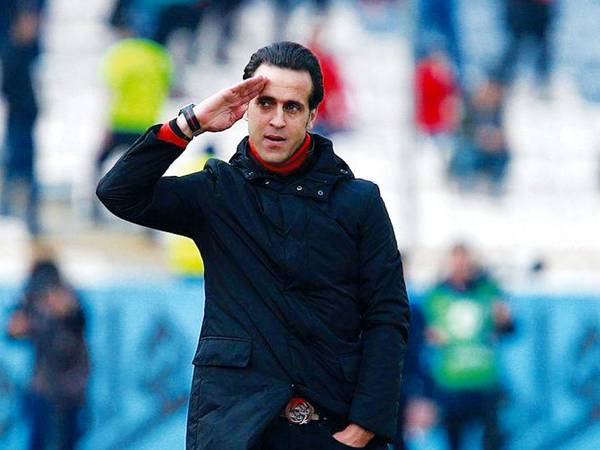Former football star, Ali Karimi, is now a social heavyweight in Iran, with 15 million Instagram followers - no longer as a soccer hero but as a political influencer.
Living in exile in Europe, Karimi became one of the influential voices during anti-regime protests in 2022, using his influence on social media to defend young women and men, who were facing heavily armed vigilante and security forces.
For years, soccer spectators have been loudly chanting his name in stadiums, despite the authorities' disdain for him. His messages prove remarkably effective and influential during critical moments, to the extent that state television hosts have officially insulted him, labeling him as dishonorable and unworthy.
As an example of his style, on January 3, Karimi posted a twelve-word Persian tweet and received 103,000 likes, more than most famous Western politicians can ever dream of. It simply said, “Have you ever seen an honorable and decent person support this regime? I haven’t seen one.”
Ali Karimi, as a social phenomenon, prompts three questions for observers of Iran: How did a soccer player emerge as the voice of opposition in a country where professional soccer is state-owned? Why can't the government simply ignore him? And what are the underlying themes of Karimi's messages that have elevated him to a position of greater influence than even the most renowned artists, politicians, and religious authorities in the country?
Message: expressing the feelings of the main streets
Let's begin with the last question. Ali Karimi has attained an intuitive grasp of conveying the sentiments of ordinary people on the streets, in bazaars, taxis, shops, barbershops, gatherings, and even at funerals. His messages mirror the conversations that take place among people in these everyday settings, resonating like precious gems in their hands. Millions of individuals share and transmit his messages among themselves. He adeptly seizes the moment, creating opportunities for dialogue or progression, and hands the metaphorical ball to the people, allowing them to take shots at the government's policies.
Karimi transmits his messages, often in very brief format, vis social media to people in Iran. The impact that his messages and posts by other activists have among the people is the reason why Iran had blocked almost all global social media platforms. Islamic Republic’s leaders, including its 84-year-old ruler Ali Khamenei detest the Internet and messaging apps mainly for this reason.
Upgrade to the voice of the voiceless
Over a span of 15 years, Ali Karimi evolved into a prominent advocate for the non-elite population in opposition to the government. During the waves of the Green Movement protests in 2009, he was among the players who sported green wristbands during a match against South Korea. Renowned for his dazzling dribbling skills, Karimi enjoys popularity among Iranians and stands as an emblematic figure in Asian soccer. He has harnessed his popularity to engage in charitable endeavors and express his political dissent.
Karimi gradually transformed from a national soccer star into an influential figure in the national public spotlight. His open criticism of Mohammad Javad Zarif's anti-Israel positions, the ban on women entering stadiums, the role of IRGC commanders in managing soccer in the country, the downing of the Ukrainian airliner in 2020, and the nationwide protests in 2019 gradually made him a civil and political activist.
Government’s concern
The substantial number of followers, reposts, and likes garnered by Karimi's messages in the digital realm, coupled with the fact that there are over 60 million smartphones in the hands of Iranians, has granted him a platform that the government cannot disregard. With the official state radio and television news website receiving approximately just 124,000 monthly visitors, it is evident that authorities are apprehensive about Ali Karimi's influence, and they cannot afford to overlook him. His exceptional reach has prompted the propaganda machinery and government officials to issue threats against him.
Reza Naqipour, deputy head of the presidential office and the former Head of Security of the Football Federation threatened Ali Karimi with the hashtag of "Ruhullah Zam" (journalist, kidnapped in 2019 by IRGC intelligence and executed in 2020). "One day you will return the way that we like, not the way you like!" which means the threat of kidnapping and execution.
This week, Iran’s state television tried to discredit Karimi for a tweet he posted on January 3, following a deadly twin bombing in Kerman, where around 90 people visiting the gravesite of Qasem Soleimani were killed. Karimi said, "Go for free food and drink, but you will get a hard revenge," referring to regime’s policy of feeding people who attend its events. But what officials do not understand is that people receive Karimi's messages directly from him and pay little attention to the government television. Tens of thousands on social media came to his support by posting comments or liking and re-posting other messages.
